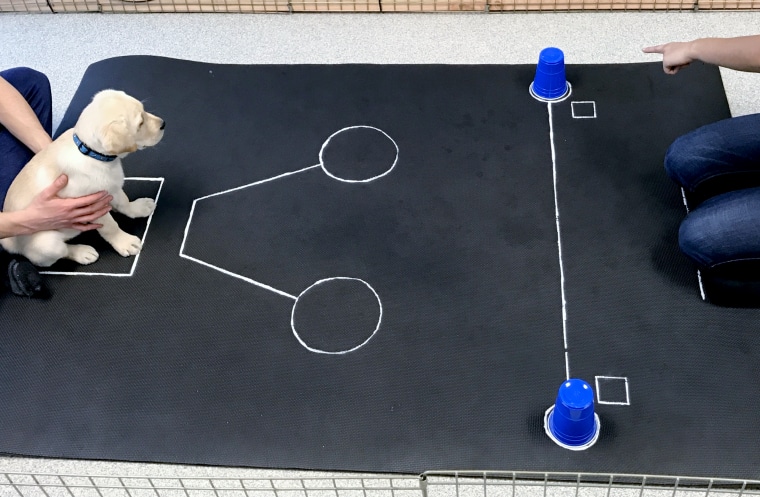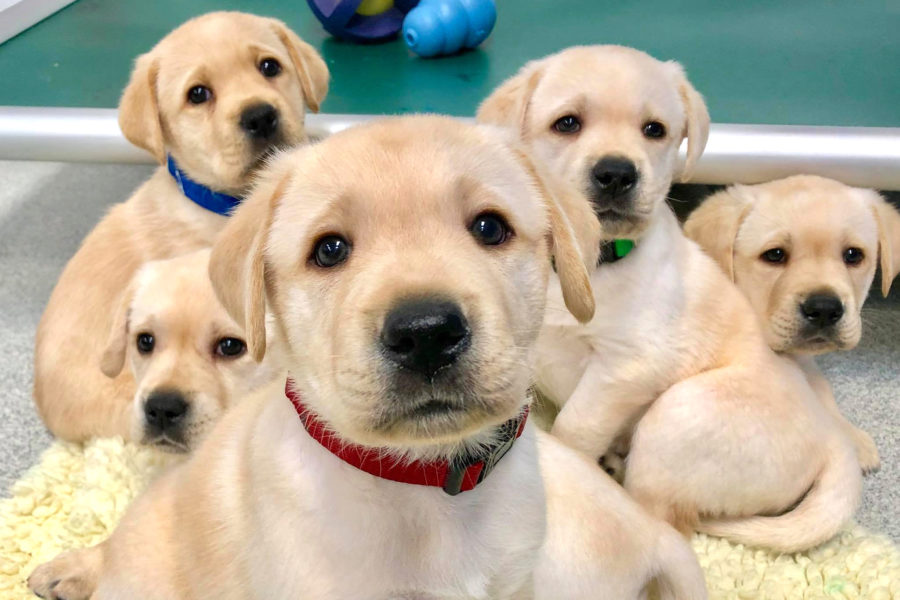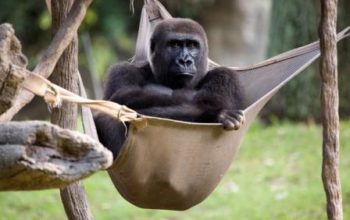Pup’s looking at you, kid: Puppies can understand human cues from very young age.
Some puppies were able to take directions from humans without any training.

An 8-week-old yellow retriever puppy looks on as an experimenter points to a cup hiding food. / Arizona Canine Cognition Center
The following written content by Linda Carroll
While dogs can eventually learn to listen to their owners, some pups seem to be born with an innate ability to understand humans, research published Thursday in the journal Current Biology suggests.
At just 8 weeks old, some of the puppies in the study showed a startling willingness to lock eyes with humans they didn’t know and to take command cues, such as directions pointed out with a finger.

“From a young age dogs are displaying humanlike social skills,” said the lead study author, Emily Bray, a postdoctoral researcher the Canine Cognition Center at the University of Arizona in Tucson and a researcher at Canine Companions in Santa Rosa, California. “Puppies, even before they have a lot of experience with people, can reciprocate [the] human gaze and can use information from humans in a social context, like pointing as a cue to find hidden food.”
To determine whether the tendency to interact with humans was innate, Bray and her colleagues ran several experiments with 375 8-week-old puppies who had little previous one-on-one experience with humans. The puppies were all Labrador retrievers, golden retrievers or a mix of the two breeds. All of the puppies in the study were bred to be service dogs.
The researchers placed a 4-foot-by-6-foot mat on the floor. At one end of the mat, a handler sat holding a puppy. At the other end sat a researcher, with two upside-down cups in front of her. One of the cups covered a treat.

In one part of the experiment, the researcher called out “puppy!” in a high-pitched voice and pointed to the cup covering the treat. Amazingly, some of the puppies would march right over to that cup, knock it over and gobble down the treat.
The ability to take directions without any training — something not all the puppies in the study could do equally well — suggested to the researchers that these particular puppies had an innate ability to understand humans.
In another part of the experiment with the same setup, instead of pointing to the cup with the treat, the researcher would call the puppy’s attention to a small yellow block and place it next to the cup with the hidden treat. Again, some of the puppies would go right to the correct cup, tip it over and grab the treat.
Noting that some of the puppies weren’t as good at understanding human communication, the researchers wondered whether the variation in the pups’ abilities could be explained by genetics.
In an analysis of the puppies’ social skills, along with their multigenerational pedigrees, the researchers found that genes could explain more than 40 percent of the variation in the dogs’ abilities. Read more from NBC.





